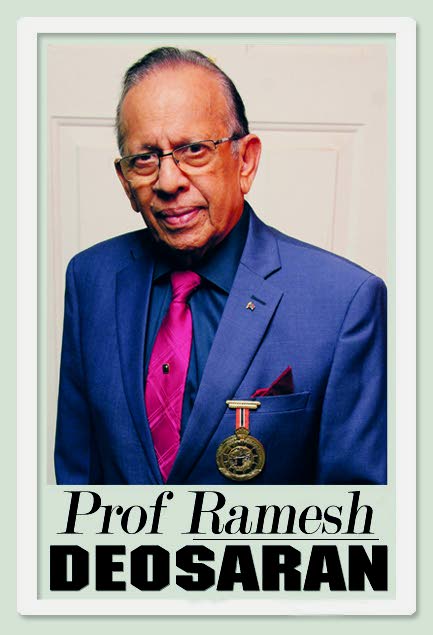Crime, promises vs reality

In his opening address at last week’s two-day Caricom symposium on Violence as a public health issue, Caricom chairman and Bahamas’ Prime Minister Philip Davis warned Caricom leaders and an anxious Caricom population: “There are no quick fixes, yet we must act quickly to save our people from this epidemic.”
This is the first reality check. “Acting quickly" against “no quick fixes” has always been and still is the enduring anti-crime challenge for political leaders facing a five-year term. Anyhow, what is this epidemic?
Mr Davis said: “An epidemic of violence grips the region, one that claims lives and generates fear and anger.”
Echoing concerns of this country’s government, Davis said, “The guns used in approximately 70 per cent of violent crimes don’t originate in Caricom countries.”
Well, how do these guns manage to enter our entry points and what are Caricom’s plans to stop this illegal entry?
The Mexico-TT legal threat to US gun manufacturers seems already to be facing bureaucratic barriers. Jamaica’s PM Andrew Holness, recognising Caricom’s own responsibility in this, called for greater attention in "protecting our own ports of entry." Complaints about our “porous, non-patrolled borders” are legendary.
Last week, too, I shared a Caribbean radio programme with Dr Kenny Anthony, former St Lucian PM, who graphically described how gang violence has become more murderous, with turf warfare. Such episodes arouse the questions: where do these gangsters come from – schools, fractured homes, juvenile homes? A major job for the Caricom team.
“Violence as a public health issue” is an intriguing, newsworthy theme, especially since violence, like crime itself, is already defined in laws and court judgements. And it is not only about taking victims to hospital, pathological criminals or the mentally deficient. The population’s intense fear of being attacked or robbed is a very unhealthy issue too.
There is therefore a policy need to connect this overall theme to what currently occupies public concerns – murders, gangs, home invasions, political corruption, etc. The public and opposing politicians should be convinced that the symposium was not just a “talk shop” as claimed.
Media reports suggest that there is an instructive amount of scepticism over last week’s symposium and the recommendations. Though unpalatable to these leaders, questions are being asked as to why many of these 15 recommendations have not been implemented before; and further, after great expense, why have those implemented met with such meagre success? Therefore, the symposium output faces a test of credibility.
Our Caricom leaders recognised this psychological resistance. Hence the PMs of Barbados, Jamaica and TT have emphasised the need for “quick action,” “concrete measures,” “we must do it now,” etc, so as to attract public confidence. And of course there is the headline-making “war on guns.”
What about the "war on drugs?"
Our PM, the hopeful pioneer of this regional exercise, while he said the proceedings “were beyond his expectations,” cautiously warned: “This is not going to be an overnight thing, there is no magic switch.” The Caricom population waits, for how long, they don’t yet know.
You see, while on one hand, many of us dutifully share in the hope of reducing crime and violence, the challenge for political leaders in each Caricom state is the extent to which there is a critical public and, especially for some recommendations, political support.
This is where Dominica’s PM Roosevelt Skerrit comes in. He advocated, for each country, a multi-sectoral mobilisation of civic society – business, labour, church, parents, experts, even the opposition – to help develop and support national anti-crime programmes in partnership with police and government.
We cannot repeatedly appeal for "all citizens" to support the police and not have such support effectively structured. When everybody is somebody, nobody is anybody. Police-citizen community policing requires a visible identity.
Hence, one of the Caricom symposium’s follow-up recommendations should be the establishment in each Caricom state of a national crime and violence commission, with terms of reference and objectives strongly tied to community policing.
Implementing such a multi-sectoral civic-support commission will help move government’s crime-fighting agenda, with some national security exceptions, from a strictly political realm into a modernised civic-partnered anti-crime realm. It has become too tiring to hear “the police cannot do it alone,” “the government cannot do it alone,” etc.
It is time to do something practical about it. Prove Dominica’s PM Skerrit right.


Comments
"Crime, promises vs reality"